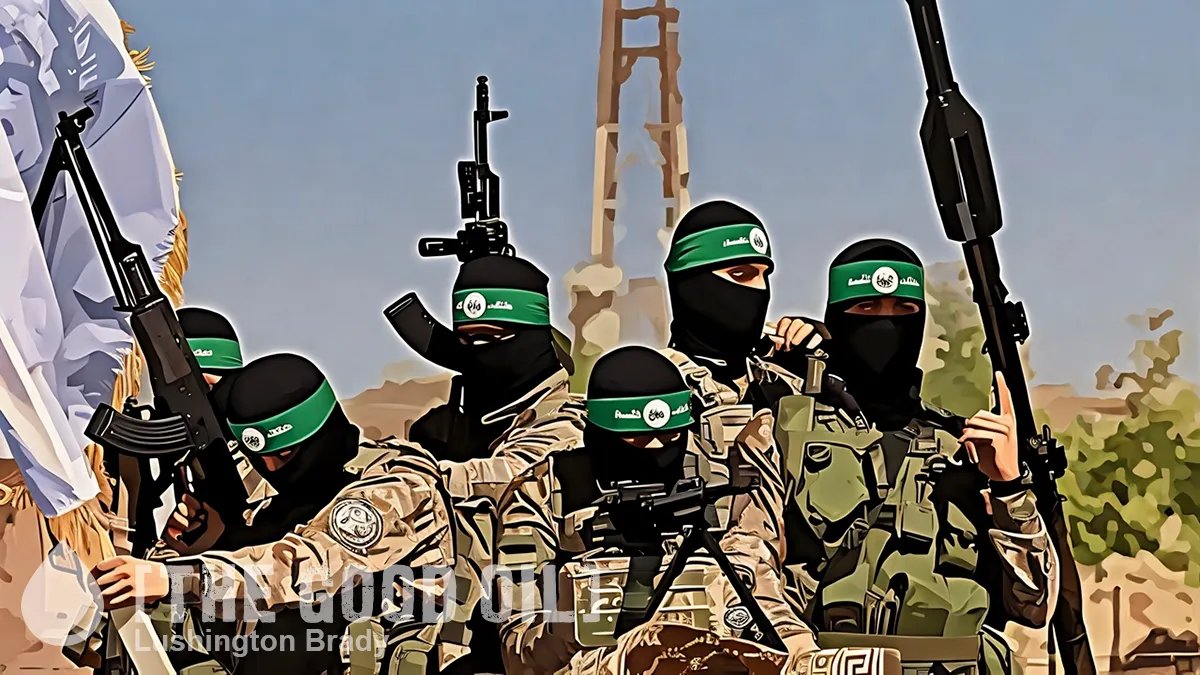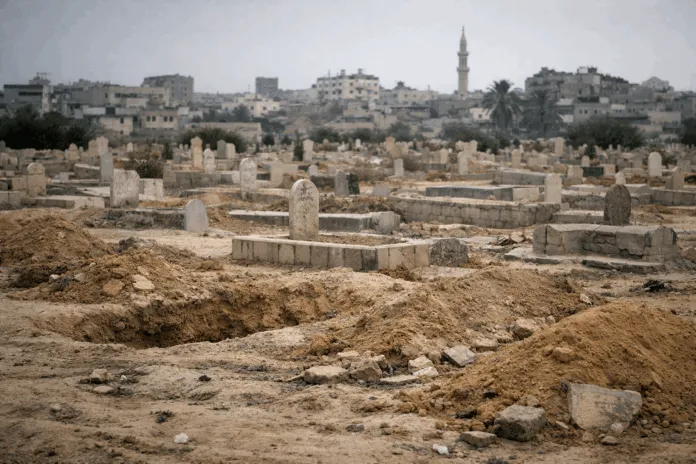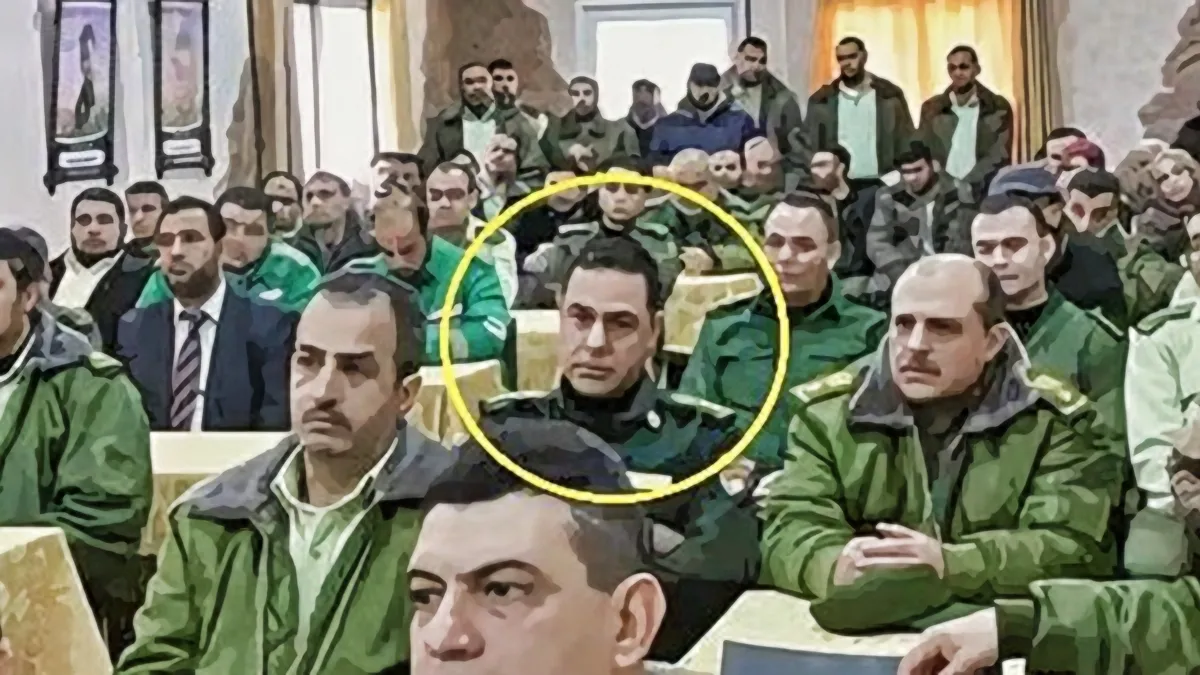Table of Contents
BICOM
BICOM provides accurate, timely and balanced information that is read by officials, experts, journalists and many others.
What’s happened: After a nearly two-week delay, Hamas has finally responded to the latest proposed hostage deal.
- According to Reuters and Israeli media reports Hamas has proposed a three-stage ceasefire plan, each lasting 45 days:
- Stage one would see all Israeli female hostages, males under 19, the elderly and sick released in exchange for Palestinian women and minors still held in Israeli prisons. Israel would allow for the reconstruction of hospitals, with the IDF withdrawing from populated areas of the Strip.
- In the second phase, all Israeli male hostages would be released in exchange for Palestinian prisoners and a complete withdrawal of Israeli forces from Gaza.
- In the third stage, Hamas would release the bodies and remains, presumably in exchange for more prisoners.
- According to Reuters, Hamas added “an addendum to the proposal that it wished for the release of 1500 prisoners, a third of whom it wanted to select from the list of Palestinians handed life sentences by Israel.”
- Israel’s Prime Minister Office confirmed that the Mossad had received Hamas’s response through Qatari mediators and was reviewing the proposal.
- US President Joe Biden responded by calling Hamas’s answer “a little over the top.”
- According to the latest IDF assessment, at least 31 of the 136 hostages held in Gaza are no longer alive. According to the New York Times, another 20 have also been killed.
- Inside Gaza, the IDF continues to operate in Khan Yunis in the south as well as in the north of the Strip.
- On Tuesday, the IDF Spokesperson Hagari gave a progress report on the subterranean operations underneath Khan Yunis, declaring, “there are not many compounds left and we have reached most of them.”
- He also revealed that IDF forces found intelligence material, “indicating a direct ‘connection’ from Iran to Hamas and more so – to Yahya Sinwar. We found official Hamas documents from 2020 detailing the funds transferred by Iran between the years 2014 and 2020 to Hamas and to Sinwar. More than one hundred and fifty million dollars were transferred from Iran to Hamas. This is another example of how Iran exports terror across the Middle East.”
- He added, “In the same subterranean space, we also found a safe with banknotes and bags containing more than twenty million shekels in cash.”
Context: It took Hamas almost two weeks to respond to the proposal reached under the auspices of the director of the CIA, alongside the head of the Mossad, the head of Egyptian intelligence and the Qatari prime minister in Paris at the end of January. (Read more details of the original proposed deal here).
- As anticipated, Hamas is looking to secure the release of heavyweight Palestinian terrorists responsible for the murder of Israelis. Whilst the hostage families and their supporters demand a deal at any price, others in Israel are concerned for the longer term effect of releasing unrepentant murders. Families of victims are likely to raise an appeal against their release.
- With no agreement on the hostage deal, Prime Minister Netanyahu continues to reinforce his message that the war will not end until Israel achieves “total victory.”
- As the combat continues, earlier this week Netanyahu said that 18 out of 24 Hamas battalions have been destroyed.
- Similarly, Defence Minister Gallant shared his assessment that “about half” of the Hamas fighting corps have been killed or seriously wounded.
- Although precise numbers are unclear, it is estimated that there were between 25,000-30,000 Hamas fighters before October 7th.
- According to the Hamas-controlled health ministry in Gaza, over 27,000 Palestinians have been killed. However, these figures do not distinguish between civilians and combatants and cannot be independently verified. Furthermore, the circumstances of the deaths of all those killed are not clear, with some thought to have died when Hamas rockets misfired and landed inside Gaza.
- The IDF announced another officer was killed in combat on Tuesday, taking the toll since the launch of the ground operation to 226 IDF personnel.
- There are calls among Israeli leaders to change the mechanism for delivering aid into Gaza, as more evidence suggests Hamas maintains the ability to control the aid and its distribution.
- US Secretary of State arrived in Israel on Tuesday night and is expected to hold meetings over the next couple of days with Israeli leaders as well as visit the West Bank.
- Following his visit to Saudi Arabia, Blinken said, “the Saudi Crown Prince once again announced Saudi Arabia’s great interest in continuing the normalisation process with Israel”.
Looking ahead: Blinken will meet today with Prime Minister Netanyahu, President Herzog, Defence Minister Gallant and other senior Israeli officials.
- Following Gallant’s announcement, there is anticipation that the IDF would extend the ground operations to the southern most town of Rafah on the Egyptian border.
- However, it is possible that this was more of a threat to induce Hamas to accept the terms of the prisoner deal.
- There is speculation that the senior Hamas leadership is hiding out in the Rafah area, but any ground operation would require the movement of over a million Gazans who have fled south and risk fracturing Israeli-Egyptian ties.
The West Bank in the Shadow of October 7
This BICOM research paper identifies dangerous trends in the West Bank, and maps Israel’s challenges in this arena in the post-October 7 context.
Download BICOM’s briefing here
PODCAST
Episode 226 | Gaza’s water and energy
In this episode, Richard Pater speaks to Dr Elai Rettig about the Gaza Strip’s water and energy supply. Rettig explains how much of Strip’s energy supply Israel was responsible for providing prior to October 7th, the importance of fuel to the water supply, and Hamas’s neglect of the Strip’s infrastructure and its own people’s welfare. Rettig is Assistant Professor at Bar Ilan University and the head of the energy division at the Begin Sadat Centre for Strategic Studies.
Listen on Apple Podcasts, Spotify and Google Podcasts
VIDEO
“Even Jews themselves often hear about Zionism through its detractors” | Fathom Interview: Einat Wilf
Top stories from the UK and Israeli media
The Times, The Telegraph, The Guardian, and the Independent report that Israel has confirmed the deaths of 31 of the hostages.
BBC News, The Guardian, and Reuters report that Hamas says it has given its response to a framework proposal for a new ceasefire in Gaza. Israel and the US have both said they are reviewing Hamas’s response. The Guardian published an article on whether Hamas’s leadership is fracturing.
BBC News, Sky News, the Independent and The Financial Times report that McDonald’s has missed a key sales target, partly due to customers boycotting the firm for its perceived support of Israel. The fast food chain reported its first quarterly sales miss in nearly four years due to weak growth in its international business division. Its boss previously acknowledged the impact of the conflict, blaming “misinformation”. Shares in McDonald’s fell about 4 per cent after the announcement.
BBC News also reports that a three-mile long line of old children’s clothes has been strewn along Bournemouth beach in a protest at the war in Gaza. Activists from the Led by Donkeys group said they were laying more than 11,000 sets of clothes to represent children killed on both sides of the conflict since 7 October.
Channel 4 has explored the recent allegations levied against UNRWA.
The Times reports that Scottish First Minister Humza Yousaf was attempting to send NHS supplies to Gaza via UNRWA in December. Civil servants contacted UNRWA, with an email that said: “We’ve been fielding a number of requests and offers from stakeholders in Scotland, and I have been asked to explore the possibility of sending NHS medical supplies to Gaza.”
The Financial Times has published a piece on Israel’s business and commerce ties to the UAE and how they have been impacted by the ongoing war.
Reuters reports that Saudi Arabia has told the US its position stands that there will be no normalised relations with Israel unless an independent Palestinian state is recognised on the 1967 borders with East Jerusalem, and Israeli “aggression” on the Gaza Strip stops, the Saudi foreign ministry said in a statement on Wednesday.
The Guardian published an article on how Hamas’s attacks on Israel on 7 October have had a huge impact on Israelis’ sense of security, with more than 260,000 new applications for weapons licences being submitted, according to the Ministry of National Security. 300,000 reservists often carry their weapons with them.
The Guardian also publishes an article on whether peace is possible: “One question has been frequently asked since the beginning of the Hamas-Israel war: “What will happen when hostilities end in Gaza?” And the only positive answer thus far has been a call to resume peace negotiations endorsing a two-state solution. This solution, it’s been claimed, is the only way to prevent what happened on and since 7 October from ever happening again. The hope of establishing a Palestine state alongside the existing state of Israel is not impossible to achieve as long as sincere efforts are made by all concerned parties. According to Gordon Brown, such hope was actually within inches of being reached during his premiership in 2008. But would that have been sufficient to bring about a lasting solution?”
In The Telegraph, Robert Clark publishes an opinion: “Events in the Middle East may be about to spiral out of control. With Hamas in Gaza, Hezbollah in southern Lebanon, and the Houthis in Yemen all targeting Israel and the West, the hand of Iran looms large. But is Tehran in danger of losing control of the escalation it started?”
The Telegraph reports that a 46-year-old man has been arrested after Mike Freer MP, a Tory minister and MP for Finchley and Golders Green, received a threatening phone call on the day he announced he was standing down over the abuse he had received for supporting Israel.
Channel 12 reports that Shin Bet Director Bar, National Security Council Director Hanegbi, and Coordinator of Government Activities in the Territories Maj. Gen. Aliyan met secretly yesterday in Tel Aviv with PLO Executive Committee Secretary General Hussein al-Sheikh. The four did not discuss the ‘day after’ in Gaza, but focussed on reducing West Bank tensions ahead of Ramadan. The Israeli officials told al-Sheikh that the question of allowing Palestinian workers back to Israel is being considered, and that a pilot programme would soon get underway in which Palestinians over the age of 45 would be permitted to enter Israel after being vetted by security officials. The intelligence, security, and military echelons have advocated the labourers’ return as part of their wider assessment that it is in Israel’s interests to support the stability of the Palestinian Authority in the West Bank. They have been opposed by some cabinet ministers.
Commenting on Hamas’s response to the hostage deal proposal, Israel Hayom’s Yoav Limor writes that “the tough position Hamas has taken, as reflected in its response to the proposal, would appear to indicate that it doesn’t yet feel that it has its back to the wall. It seems that more effort, time and mediation will be required to begin to bridge the gaps between the two sides. Still, despite the high price being demanded, it is important to keep the lines of communication open and the negotiations active, even if only due to the real moral debt that Israel owes the hostages. They were already forsaken once. The State of Israel needs to show that it truly intends to leave no stone unturned in its effort to get them home.”
Army Radio covers the arrival in Israel today of US Secretary of State Blinken. The station reports that Blinken is expected to try to make progress on two main issues: increasing the scope of humanitarian aid to the Gaza Strip and a hostage deal. I24 adds that despite Prime Minister Netanyahu initially rebuffing Blinken’s request that he receive a briefing from IDF Chief of Staff Halevi in private, a one-on-one meeting will now be held.
Kan Radio reports Syria accusing Israel of carrying out an attack in the Homs area last night, in which it says civilians were killed and wounded. Syrian opposition figures said that the Israeli attack had targeted Iran and its proxies.
Elsewhere in the north, Israel Hayom reports two Israeli soldiers were wounded yesterday from an anti-tank missile hit in the Margaliot area. The missile hit an open area but the two soldiers were impacted by the blast and suffered from minor injuries. The IDF attacked a Hezbollah military building and operational infrastructure in the Mays Al-Jabal area in southern Lebanon in response. It also shelled southern Lebanon with artillery.
Haaretz suggests that Israel is considering the possibility of replacing UNRWA operations in the Gaza Strip with those of the UN World Food Programme. This follows the concerns of Ministers Gantz and Eisenkot (see yesterday’s Israeli Media Summary) that 60 percent of aid to Gaza currently ends up in the hands of Hamas. “However, a source familiar with the discussions stated that the World Food Programme lacks the necessary infrastructure in Gaza to replace the agency’s activities, noting that establishing such infrastructure would cost hundreds of millions of dollars and take a long time. ‘Unlike UNRWA, which already has a ready and active infrastructure in the area,’ the source added.” Ynet adds that another option being considered is USAID, while Israel Hayom writes that Finance Minister Smotrich has instructed legal advisers in his ministry to draft orders cancelling all the financial benefits currently enjoyed by UNWRA.
Ynet features a special report released this morning by global Microsoft, led by Microsoft Israel, which sheds light on Iranian cyber activities following Hamas’s attack on Israel on October 7. The report suggests that Iran was not initially part of the secret planning of the attack but was “subsequently drawn into action by Hamas’s designs.” According to the report, “since Hamas attacked Israel in October 2023, Iranian government-aligned actors have launched a series of cyberattacks and influence operations (IO) intended to help the Hamas cause and weaken Israel and its political allies and business partners.” Researchers said that Iranian groups “made use of new techniques we’ve not seen from Iranian actors, including using AI as a key component to its messaging” in order to “undermine Israeli security and intimidate the citizens of Israel and its supporters by delivering threatening messaging and convincing target audiences that their state’s infrastructure and government systems are insecure.”
I24 News reports Argentine President Javier Milei paying an emotional visit to the Western Wall, as part of his first visit to Israel since his election last November. Milei also pledged to move the Argentine Embassy to Jerusalem. Israeli Foreign Minister Israel Katz welcomed Milei at Ben Gurion Airport, along with Argentine Foreign Minister Diana Mondino, Presidential Chief of Staff Carina Elizabeth Milei, and his spiritual guide, Rabbi Shimon Axel Wahnish. Katz thanked Milei “for his support for Israel and for coming to strengthen the Jewish people against Hamas terrorists.”
Haaretz reports the US House of Representatives rejecting Republican efforts to pass a standalone bill yesterday, which would have provided Israel with over $17 billion in emergency aid to Israel. “Even if it advanced, however, the bill would have had zero chance of advancing given Senate Democrats’ insistence that Israel aid be included in U.S. President Joe Biden’s national security supplemental aid package, which includes over $14 billion in Israel aid. Biden further warned he would veto the standalone bill if it managed to reach his desk, illustrating the unrealistic nature of the bill ever advancing.” Biden’s package includes further aid to Ukraine, and Democrats argue that Republican opposition is not due to wanting more for Israel, but rather less for Ukraine.
Recommended Reading
Hostages’ Families to Intensify Their Campaign as Netanyahu Rebuffs Mediation Efforts, Amos Harel, Haaretz
- “Hamas is again demanding an end to the war as a condition for any agreement and Netanyahu is objecting partly for political reasons. Even an interim deal seems a long way off. Amid reports that the number of hostages who died in captivity is higher than Israel has admitted, it seems the government is losing interest in the war.” Read more
Biden’s sanctions against Israeli settlers could have significant implications, Dr Matan Gutman, Ynet
- “Sanctions could potentially impact the Israeli economy, Israel’s law enforcement policy in the West Bank, and its international standing since they indicate the U.S.’s lack of confidence in Israel’s ability to enforce its laws autonomously.” Read more
The international community must hold Hezbollah accountable, Editorial, The Jerusalem Post
- “The Hezbollah threat to northern Israel continues and must be confronted eventually. Hezbollah is an Iran-backed terrorist organization that possesses a large arsenal of rockets as well as drones, anti-tank guided missiles, and other weapons. It has festooned southern Lebanon with bunkers, tunnels, and bases.” Read more









